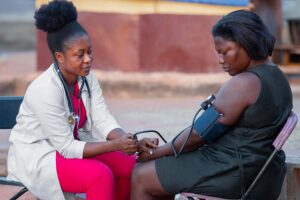Blood donation is an act of kindness that can save countless lives. But did you know you can sell your plasma in Nigeria and both help others and earn money in return? Plasma donation centers across the country are always in need of this vital component of blood to treat conditions like burn injuries, cancer, and clotting disorders. Whether you’re thinking of donating plasma for the first time or looking for the best places to sell your plasma, this step-by-step guide will provide you with all the information you need to make an informed decision.
Why Donate Plasma? The Benefits of Plasma Donation
Before diving into the details of where and how to sell your plasma, it’s essential to understand why plasma is so valuable. Plasma is the liquid portion of blood, and it’s used to treat patients suffering from a variety of health conditions. In fact, plasma is the key ingredient for producing life-saving therapies for people with bleeding disorders, immune deficiencies, and burn victims.
Some additional benefits of blood donation include:
-
Improved Skin Health: Donating plasma can stimulate your body to regenerate new blood cells, promoting healthier skin.
-
Health Check-Up: Each donation comes with a health screening that helps identify potential issues.
-
Support Medical Research: Plasma is used in clinical trials to develop new treatments for various diseases.
In addition to these health benefits, you’ll also be compensated for your time, making plasma donation a win-win situation.
What is Plasma and How is it Different from Blood Donation?
While both blood donation and plasma donation involve giving part of your blood, the processes are slightly different. Plasma is separated from your blood during donation, while the rest of your blood (red blood cells, white blood cells, platelets) is returned to your body. The process typically takes longer than a regular blood donation, but it is safe, and you can donate plasma more frequently—about once every two weeks.
Step 1: Understand Your Eligibility for Plasma Donation
Not everyone is eligible to donate plasma. Plasma donation centers have specific criteria you need to meet. Here’s what you need to know before heading to a plasma center:
-
Age: You need to be between 18 and 60 years old.
-
Weight: Generally, you should weigh at least 50kg (110lbs).
-
Health: You should be in good health, free from infections or conditions like the flu, and not on any medications that could affect your plasma quality.
-
Blood Group and Rhesus Factor: Certain blood groups and rhesus factors may be in higher demand depending on the medical needs of the population.
Having the correct genotype is also important, as some blood types are more compatible for certain patients.
Step 2: Find a Plasma Donation Center in Nigeria
Once you’ve confirmed your eligibility, the next step is finding a reputable plasma donation center. In Nigeria, there are various plasma centers that specialize in collecting plasma. You can also visit blood banks, where plasma is processed and stored.
Some of the leading plasma centers in Nigeria include Oneus, a trusted name in plasma donation. Oneus offers an easy and transparent donation process, with well-trained staff who ensure that you have a safe and comfortable experience.
Here’s how to find a reliable center:
-
Search Online: Websites like Oneus provide detailed information on how to sell blood plasma and donate.
-
Ask for Recommendations: You can also reach out to local hospitals or blood banks for recommendations.
-
Check for Certification: Always ensure the center is licensed by health authorities for blood and plasma collection.
Step 3: The Donation Process
Once you arrive at the donation center, here’s what you can expect during the plasma donation process:
-
Registration: You’ll be asked to fill out a health questionnaire and provide your contact details.
-
Screening: A nurse will check your blood pressure, heart rate, and perform a quick blood test to ensure you’re fit to donate.
-
Plasma Collection: The actual donation process takes about 45 minutes, during which blood will be drawn, separated, and the plasma collected.
-
Recovery: After donation, you’ll be offered fluids and snacks to help your body recover.
Step 4: Get Paid for Your Plasma Donation
Many plasma donation centers, including Oneus, offer compensation for your time and effort. This is an added incentive for people who want to donate plasma regularly. The amount you earn depends on the center’s payment policy, but the compensation is typically between ₦2,000 to ₦5,000 per donation.
Step 5: Risks and Considerations
While donating plasma is generally safe, there are some risks you should be aware of:
-
Dehydration: Plasma donation can cause dehydration, so it’s important to drink plenty of water before and after donation.
-
Bruising or Discomfort: Some people experience bruising or discomfort at the needle site, but this usually resolves within a few days.
Final Thoughts: Save a Life, Sell Your Plasma Today!
Donating plasma is an easy way to save lives while earning extra income. Whether you’re looking for the best plasma donation centers in Nigeria or curious about the cost of cord blood banking, it’s essential to choose a trusted provider. Oneus is a reliable and certified plasma donation center that makes the process easy and secure.
So, give blood, save a life—Book your donation now! Contact us at info@oneusng.com, call +234 902 168 2822, or visit our website at Oneus Plasma Donation.
Take Action: Be a Hero Today!
By donating plasma, you’re not just saving a life; you’re giving someone a second chance. Sell your plasma, make a difference, and help those in need!




